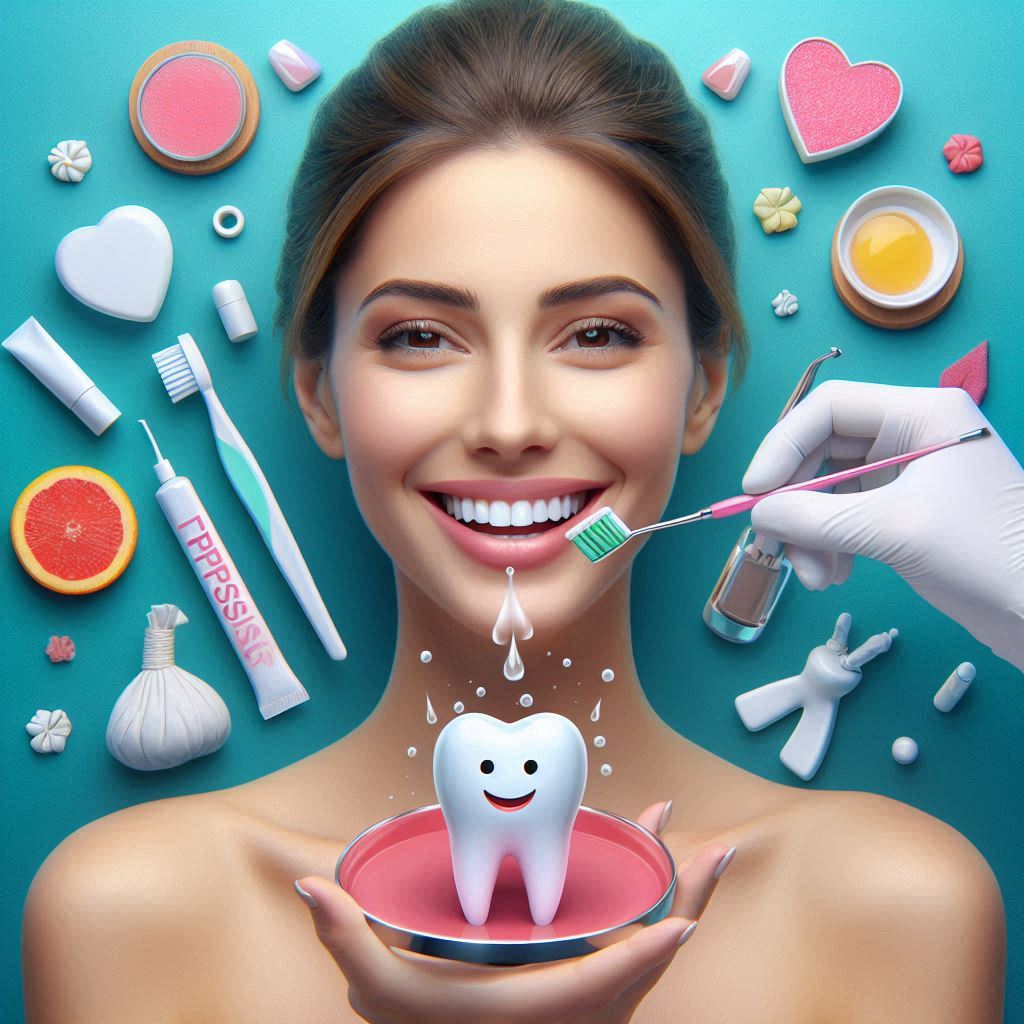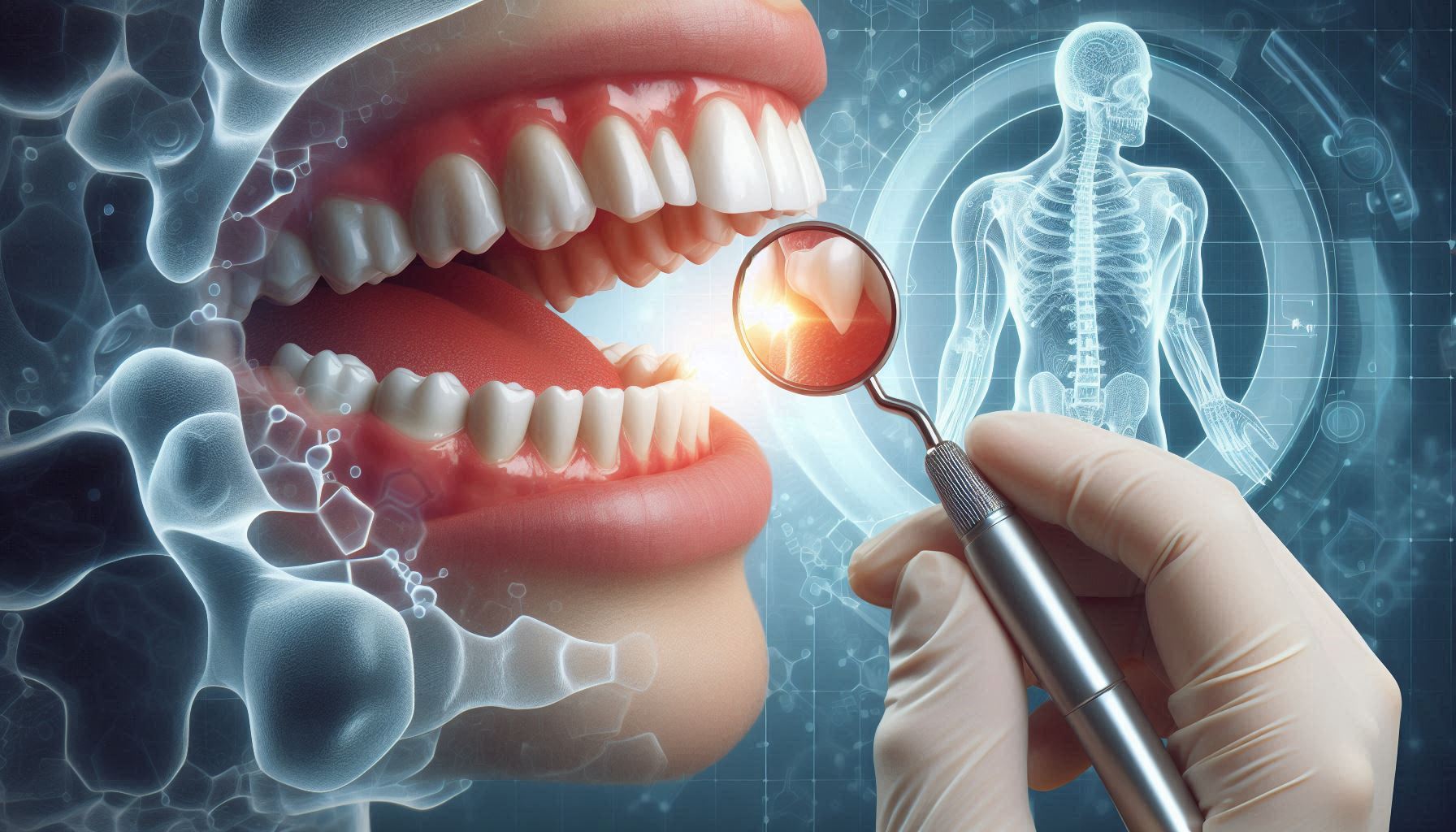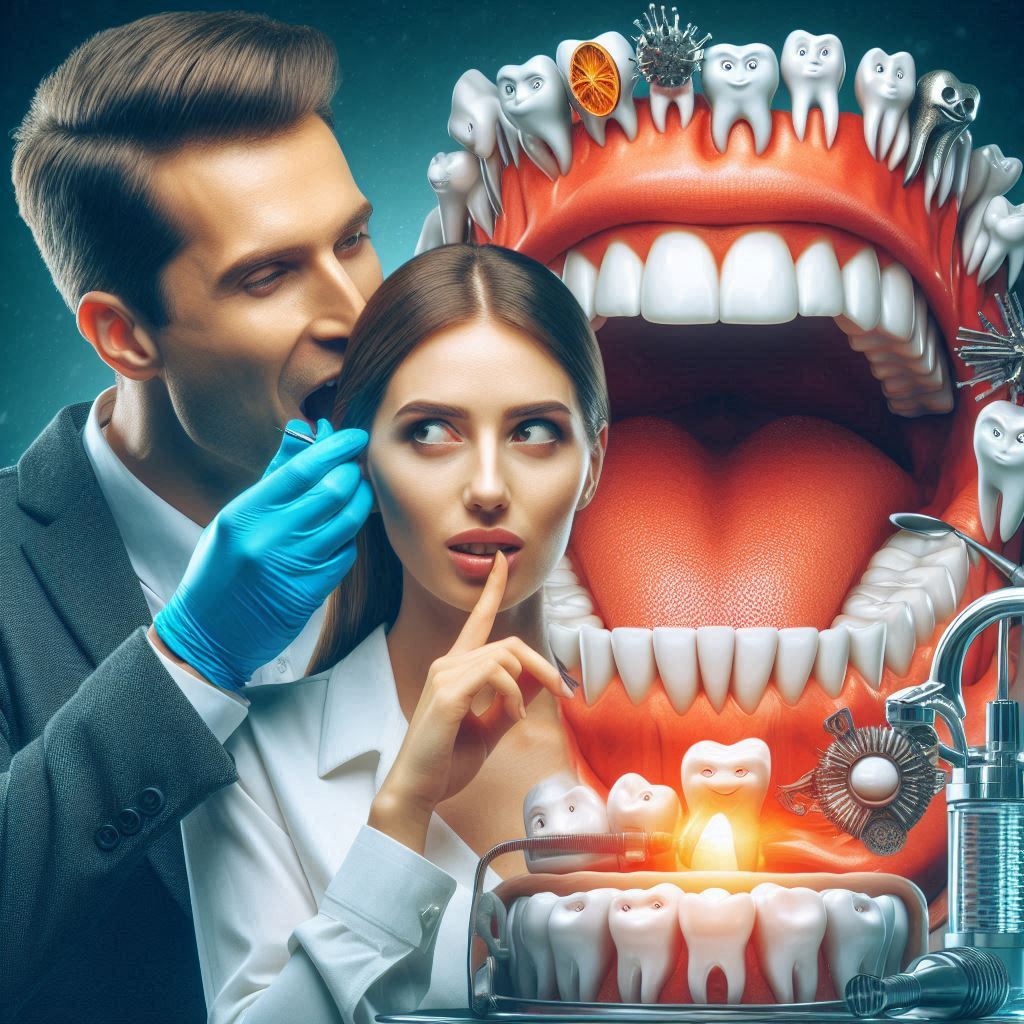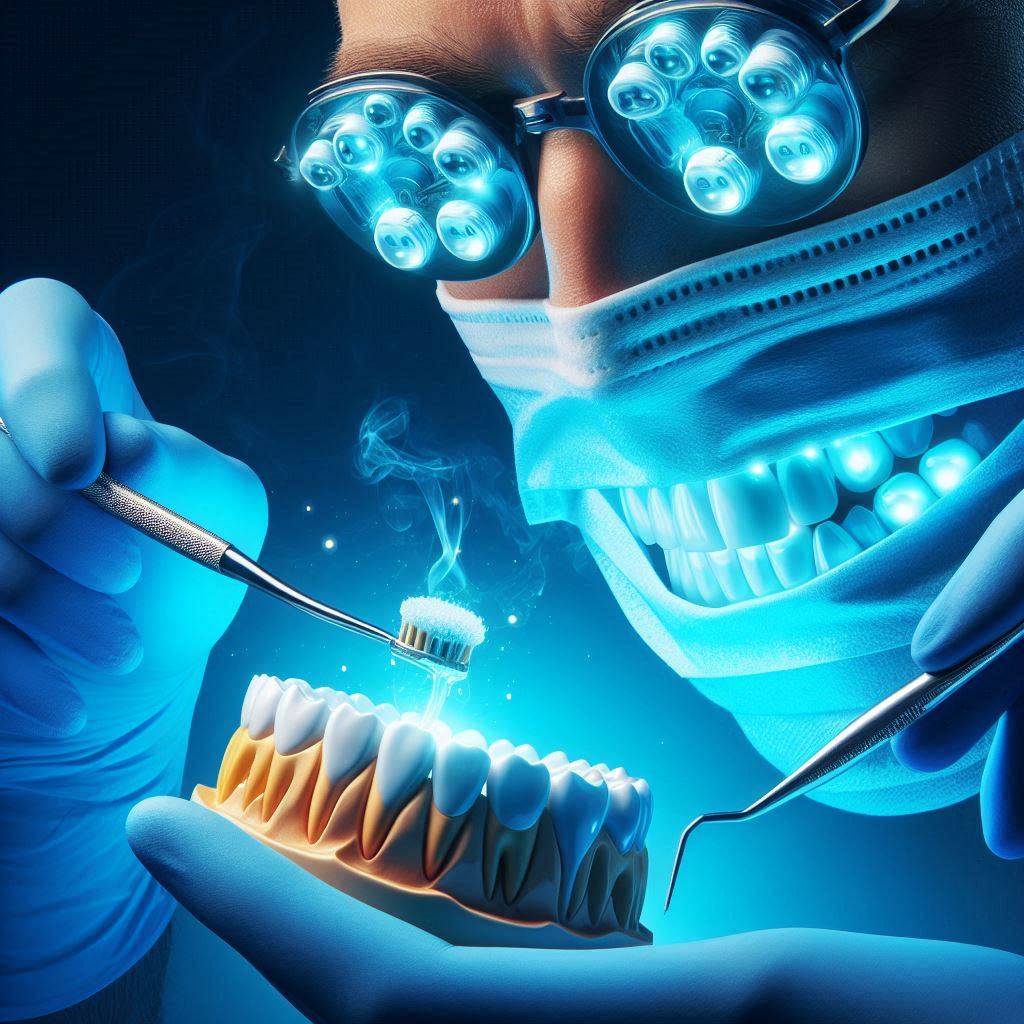Introduction: The Power of First Impressions
The concept of first impressions is more than just a social nicety; it’s a psychological reality that governs our interactions. Psychologists argue that the initial moments of a new interaction shape the entire relationship. From a business meeting to a casual social encounter, the first few seconds can significantly influence how you are perceived. The moment someone meets you, they begin making judgments—about your personality, your competence, and even your trustworthiness. While numerous factors contribute to these snap judgments, one of the most influential and often underappreciated elements is your oral hygiene.
Oral hygiene doesn’t just affect how we feel about ourselves; it has the potential to influence how others see us. A confident smile, paired with fresh breath and healthy teeth, can create a positive impression that lasts long after the initial encounter. On the flip side, poor oral hygiene can unintentionally convey messages of neglect, poor health, or lack of attention to detail. Whether you’re at a job interview, on a date, or meeting someone for the first time, how you present your smile can shape people’s opinions about you in ways you may not even realize.
This guide seeks to highlight why oral hygiene plays a pivotal role in first impressions and how it can act as a secret weapon in helping you succeed both personally and professionally. We will break down the science behind first impressions, explore the psychological importance of oral health, and provide practical tips for keeping your smile in top shape.
The Psychology of First Impressions
First impressions are a form of social judgment that happen quickly, almost unconsciously. It’s often said that “you never get a second chance to make a first impression,” and this holds true in nearly every facet of life. Within seconds of meeting someone, we make decisions about them based on their appearance, body language, and, most notably, their smile. According to a study conducted by Princeton University psychologists, people form an opinion of someone within the first 100 milliseconds of meeting them—an almost instant assessment of trustworthiness, likeability, and competence.
The Role of Facial Expressions in Judgments
A person’s face is the first thing people notice. More than 50% of the initial impression comes from the face—especially when interacting face-to-face. A warm, genuine smile can trigger positive emotions in the observer, while a neutral or closed expression can make you appear unapproachable or even unfriendly.
Your smile, as simple as it seems, is one of the most powerful expressions of non-verbal communication. A bright, confident smile signals warmth and openness, while a forced or self-conscious smile may indicate discomfort or insecurity. This is where the link between oral hygiene and first impressions becomes clear. People often associate healthy teeth and a clean mouth with traits like health, hygiene, and attention to detail—traits that are inherently attractive in both personal and professional interactions.
Oral Hygiene and Nonverbal Cues
The impact of oral hygiene on first impressions extends beyond just the visual aspects of your smile. It’s also about the unspoken cues your mouth sends during conversations. Fresh breath is critical. If someone has bad breath, it can make others feel uncomfortable, leading to a negative perception of the person—even if they don’t say anything about it. In a world where we are constantly engaging in close communication, whether in person or via digital means, breath is a crucial factor in forming trust and rapport.
A 2014 study in the journal PLOS One revealed that people who maintain good oral hygiene are viewed more positively by others. The study showed that participants rated individuals with visible dental issues—such as yellow teeth or bad breath—lower on measures of attractiveness, intelligence, and even health.
The Impact of Oral Hygiene in Social Settings
Oral hygiene is often the unsung hero when it comes to navigating social situations. Whether you’re at a party, networking event, or simply meeting someone for the first time, your ability to engage confidently with others is crucial. And this engagement often begins with your smile.
The Science of a Smile
Our smiles are not only socially significant; they are deeply ingrained in our biology. When we smile, our brain releases dopamine, serotonin, and endorphins, chemicals that make us feel good. This makes smiling an instant mood booster, not only for the person smiling but also for those around them. When you smile with confidence, you’re not only enhancing your own well-being but also fostering a positive environment for others.
People are subconsciously drawn to those who smile frequently because smiling is universally perceived as a sign of happiness and friendliness. Conversely, people who are self-conscious about their smile due to dental issues may avoid smiling or limit their interactions, which can inhibit the formation of new social connections.
Bad Breath and Social Anxiety
A significant concern for many individuals is the possibility of bad breath. Halitosis, the medical term for bad breath, is a condition that affects millions of people worldwide and can result from poor oral hygiene, gum disease, or even an underlying medical condition. Regardless of the cause, bad breath has a direct negative impact on social interactions.
For people who struggle with chronic bad breath, social anxiety may also become a concern. The fear of being judged for unpleasant breath can lead to self-isolation, avoidance of social situations, or even a lack of confidence in speaking with others. However, by addressing the root causes of bad breath and maintaining good oral hygiene, you can significantly reduce this concern and regain confidence in your social interactions.
Oral Hygiene in Professional Environments
In professional settings, first impressions can make a significant difference between landing a job and missing out on an opportunity. Whether you’re interviewing for a new position or meeting a client for the first time, how you present yourself speaks volumes about your professionalism, attention to detail, and confidence. Among all the factors that contribute to a strong professional image, oral hygiene is often one of the most impactful.
Oral Hygiene and Your Career Success
Your smile is one of the first things people notice in professional settings. Whether you’re meeting with a potential employer or a business partner, a clean, confident smile signals that you take care of yourself and value your professional image. Employers often view individuals who maintain good oral hygiene as more reliable, responsible, and even more competent.
In contrast, visible dental problems or poor oral hygiene can be distracting in professional interactions. During an interview or a meeting, if you’re constantly worrying about the condition of your teeth or your breath, it can detract from your ability to focus on the conversation at hand. Confidence is key in professional settings, and maintaining good oral hygiene can help ensure that you present your best self in any business environment.
The Impact of Oral Hygiene in Client Relations
The importance of oral hygiene extends beyond just job interviews. For those in client-facing roles, maintaining a clean, healthy smile is essential for building trust and credibility. A client is more likely to feel at ease working with someone who exudes professionalism and warmth and your smile plays a central role in conveying that.
In industries such as sales, healthcare, law, and consulting, the ability to create strong relationships with clients is paramount. A confident smile can help break the ice and establish rapport, while poor oral hygiene may unintentionally create barriers between you and your clients.
The Connection Between Oral Hygiene and Overall Health
Oral health is intrinsically linked to overall health, and neglecting your oral hygiene can lead to a wide range of systemic health issues. Poor oral care can result in gum disease, cavities, and tooth loss, but these dental problems can also contribute to more serious conditions like heart disease, diabetes, and stroke. Keeping your mouth healthy doesn’t just ensure a great smile—it plays an important role in your overall well-being.
The Systemic Effects of Poor Oral Hygiene
Gum disease, for example, has been linked to an increased risk of heart disease. In fact, research shows that the bacteria that cause gum disease can enter the bloodstream and contribute to the development of cardiovascular conditions. Likewise, individuals with diabetes are more susceptible to gum disease, and poorly managed diabetes can, in turn, exacerbate oral health problems.
Additionally, recent studies suggest that oral infections can impact pregnancy outcomes, including preterm births and low birth weight. The link between oral hygiene and systemic health emphasizes the importance of regular dental care—not just for cosmetic reasons but for overall health maintenance.
Maintaining Oral Health for Long-Term Success
By maintaining good oral hygiene practices, such as brushing, flossing, and regular dental check-ups, you reduce the risk of gum disease, cavities, and other dental problems. This commitment to oral health contributes to a healthier body, which in turn contributes to a more confident and professional appearance. Your oral health reflects your approach to self-care, and in a society that values health-consciousness, a clean and healthy mouth is a valuable asset.
Practical Tips for Maintaining Oral Hygiene
Now that we understand the significance of oral hygiene, let’s delve into some practical tips to ensure your smile is always at its best.
1. Brush Twice a Day
Brushing your teeth twice a day is the cornerstone of good oral hygiene. Make sure to use fluoride toothpaste and a soft-bristled toothbrush, which helps protect your gums and enamel. Brushing for at least two minutes ensures that you remove food particles, plaque, and bacteria that accumulate on your teeth. It’s important to clean all surfaces of your teeth—the front, back, and chewing surfaces. Additionally, don’t neglect your tongue. The surface of the tongue can harbor bacteria that cause bad breath and other oral health issues. Brushing your tongue with a toothbrush or using a tongue scraper can significantly improve your breath and overall oral hygiene.
2. Floss Daily
Flossing is a crucial step in oral care that targets areas a toothbrush can’t reach—mainly between your teeth and along the gum line. Even if you brush thoroughly, plaque and food particles can get trapped in these tight spaces, leading to gum disease, cavities, and bad breath. Flossing removes these particles, reducing plaque buildup and preventing tooth decay. It also helps to reduce the risk of gum disease by cleaning below the gum line, where bacteria can cause inflammation. For best results, floss every day to keep your gums healthy and teeth clean.
3. Use Mouthwash
Incorporating mouthwash into your daily routine is a great way to complement brushing and flossing. Mouthwash helps kill bacteria that cause gum disease, cavities, and bad breath. It also freshens your breath, leaving your mouth feeling clean and rejuvenated. Opt for an alcohol-free mouthwash to avoid drying out your mouth. Alcohol-free formulas are also gentler on your gums and help maintain moisture. Mouthwash can be especially helpful in preventing gingivitis, reducing plaque, and promoting overall oral health.
4. Stay Hydrated
Drinking plenty of water throughout the day not only keeps you hydrated but also helps keep your mouth clean. Water washes away food particles and bacteria, reducing the risk of plaque buildup and tooth decay. It also neutralizes acids that are produced by bacteria in your mouth, preventing acid erosion that can lead to cavities. Regular water intake helps to maintain a healthy flow of saliva, which is essential for neutralizing acids and protecting your teeth from decay.
5. Regular Dental Visits
Visiting your dentist at least twice a year for check-ups and professional cleanings is essential for maintaining oral health. Your dentist can detect issues such as cavities, gum disease, or tooth decay before they become serious. Routine cleanings help remove plaque and tartar that can’t be addressed by brushing and flossing alone. Professional assessments ensure that you stay on top of your oral health and receive timely treatments when needed.
6. Limit Sugar and Quit Smoking
Reducing your sugar intake is one of the most effective ways to prevent tooth decay. Sugar feeds harmful bacteria in your mouth, leading to plaque buildup and cavities. Be mindful of sugary snacks and drinks, and opt for healthier alternatives to keep your teeth strong. Additionally, quitting smoking has numerous benefits for your oral health. Smoking contributes to gum disease, tooth discoloration, bad breath, and a greater risk of oral cancer. Stopping smoking can improve your overall health and significantly enhance the appearance and longevity of your smile.
Conclusion
Oral hygiene goes beyond just aesthetics—it’s deeply connected to your overall health, self-confidence, and the impression you leave on others. Whether in social or professional settings, how you care for your teeth and gums can significantly influence how you’re perceived and how you feel about yourself. A bright, clean smile exudes health, positivity, and attentiveness, making others more likely to feel comfortable and engaged around you. Maintaining good oral hygiene is an investment in your long-term well-being, reducing the risk of dental issues and more serious health problems like heart disease and diabetes. It also contributes to a sense of self-assurance. When you take care of your oral health, you present yourself as someone who values personal care and professionalism. This positive self-image can impact your interactions, from job interviews to networking events and casual conversations.
Ultimately, your oral hygiene is an essential part of the first impression you make on others. A confident smile can set the tone for success, opening doors in both personal and professional realms. So, the next time you smile, remember that your oral hygiene is more than just about looks—it’s your secret weapon for making lasting, meaningful impressions.
SOURCES
American Dental Association. 2020. Oral health topics: Bad breath (halitosis). American Dental Association.
Babatunde, O. & Haregu, T. 2016. The impact of oral health on self-esteem and social interactions. International Journal of Dental Hygiene, 14(4), 239-245.
Cheng, X. & Lin, Y. 2018. Influence of a bright smile on first impressions and social perception. Journal of Social Psychology, 158(3), 245-259.
Hickson, M. & Baldwin, C. 2017. The link between oral health and systemic diseases: A clinical review. Journal of Clinical Periodontology, 44(8), 796-803.
Jones, A. & Warren, B. 2014. Social impacts of bad breath: A qualitative study. International Journal of Dental Science and Research, 2(3), 97-103.
Lytle, L. A. & Greenwood, C. M. 2019. Perception of smile quality and its association with self-esteem and confidence. Journal of Oral Rehabilitation, 46(1), 68-73.
McGrath, C. & Bite, S. 2015. The role of oral hygiene in creating a lasting first impression. Journal of Professional Communication, 30(5), 456-467.
Meyer, A. & Rolf, S. 2016. Examining the relationship between oral health and work-related success. Journal of Applied Psychology, 101(8), 1192-1203.
Papageorgiou, S. & Kottakis, J. 2017. Oral hygiene habits and their relationship with general well-being. European Journal of Oral Sciences, 125(2), 152-159.
Schwartz, S. L. & Taylor, R. B. 2015. The role of a smile in professional settings: Nonverbal communication in the workplace. Business Communication Quarterly, 78(4), 465-481.
Trivedi, M. & Patel, K. 2018. Exploring the psychological impacts of dental health on self-image and social behavior. Journal of Dental Research, 97(9), 1012-1019.
HISTORY
Current Version
January 27, 2025
Written By:
SUMMIYAH MAHMOOD




